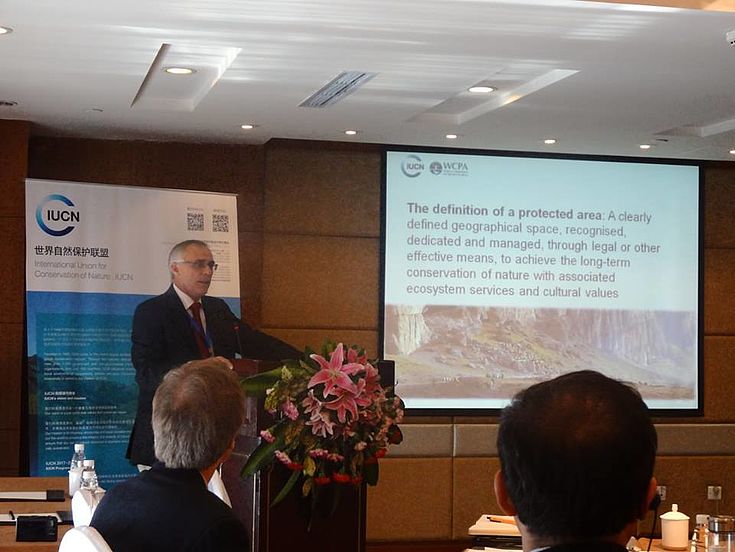Promoting regional cooperation for the environment – HSF participated at a regional workshop by IUCN
On February 20th, the Northeast Asia Regional Capacity Building Workshop on Protected Area Management and the IUCN Red List of Threatened Species started. Felix Glenk, projects manager for DPRK at HSF Korea, took part at the workshop. The workshop brought together more than one hundred participants from different countries, including China, Mongolia, the Republic of Korea and the Democratic People´s Republic of Korea and was organized by the International Union for the Conservation of Nature (IUCN). IUCN is one of the largest environmental organizations in the world with today more than 1000 staff in more than 60 countries and is working in the field of nature conservation and sustainable use of natural resources.
The workshop was the first of its kind by IUCN, bringing together regional actors in Northeast Asia to strengthen the capacity on Protected Area Management and the IUCN Red List of Threatened Species. Hanns Seidel Foundation already cooperated together with IUCN during an international conference on wetland protection in Pyongyang last October (you can read more about it here). The workshop was inaugurated by Dr. Zhu Chunquan, country representative of IUCN China. Following his speech, Mrs. Aban Marker Kabraji, IUCN Regional Director for Asia, spoke about the idea for the workshop resulting from a request by the National Conservation Union of Korea (NCUK) of DPRK. The president of IUCN, Mr. Zhang Xinsheng, finished the opening ceremony with a speech focusing on the role of Asia as a driving engine in the world while lacking of regional and transboundary cooperation.
The workshop lasted for five days and included a field visit to Baihua Mountain National Nature Reserve. While the first two days focused on the management of protected areas, the last two days had the topic the IUCN Red List of Threatened Species. Both parts included case studies of the participating countries Mongolia, China, the DPRK and the ROK. The workshop served as an example how cooperation and exchange can continue despite growing tensions and threats in the Northeast Asia region. The participants agreed that cooperation for the conservation of the environment, which does not know without borders and concerns citizens of all countries in the world should be seen as an opportunity for a better understanding in Northeast Asia.

